
Key Highlights
- Not all people who have diabetes need insulin. It depends on the type of diabetes and what is right for their health.
- People with type 1 diabetes have to take insulin. That is because their bodies do not make it.
- A lot of people with type 2 diabetes have insulin resistance. They often manage their blood sugar and blood sugar levels with lifestyle changes or taking medicine by mouth.
- If blood sugar cannot be controlled with other ways, those with type 2 diabetes might need to start insulin therapy.
- Other ways to treat type 2 diabetes, besides insulin, include oral medicines, non-insulin shots, and big lifestyle changes.
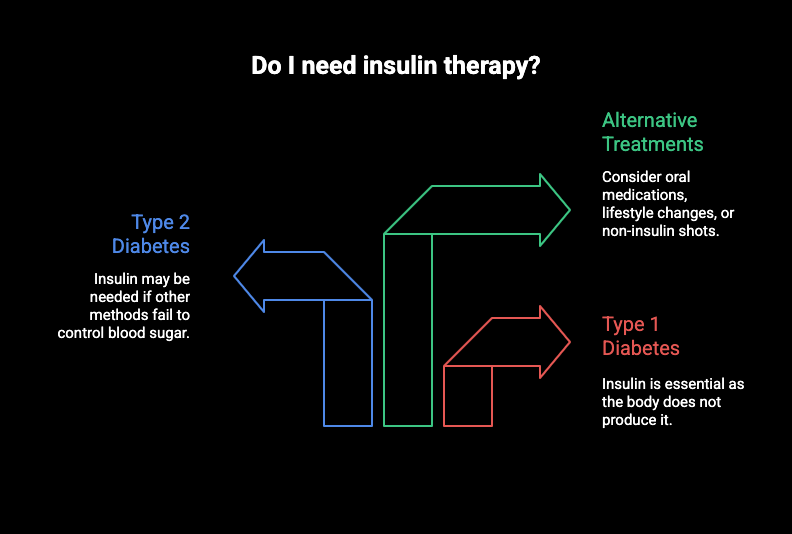
Introduction
If you or someone you care about has been told they have diabetes, you may have a lot of questions about how to treat it. A main question is if insulin is always needed. This is not easy to say yes or no to. The way diabetes care works depends on your health conditions and the way your body handles blood sugar. A treatment plan should be made for each person based on what they need. This guide will help you see why insulin matters and show how diabetes care plans are different for everyone.
Understanding Insulin Needs for Diabetics: What You Need to Know
Living with diabetes can feel tough at times. But new treatments in modern medicine have changed the way people think about insulin needs, especially for those who have type 2 diabetes. Let’s look at what we now know about when people need to use insulin. We will also talk about how other ways of treatment can help a person manage diabetes in the best way.
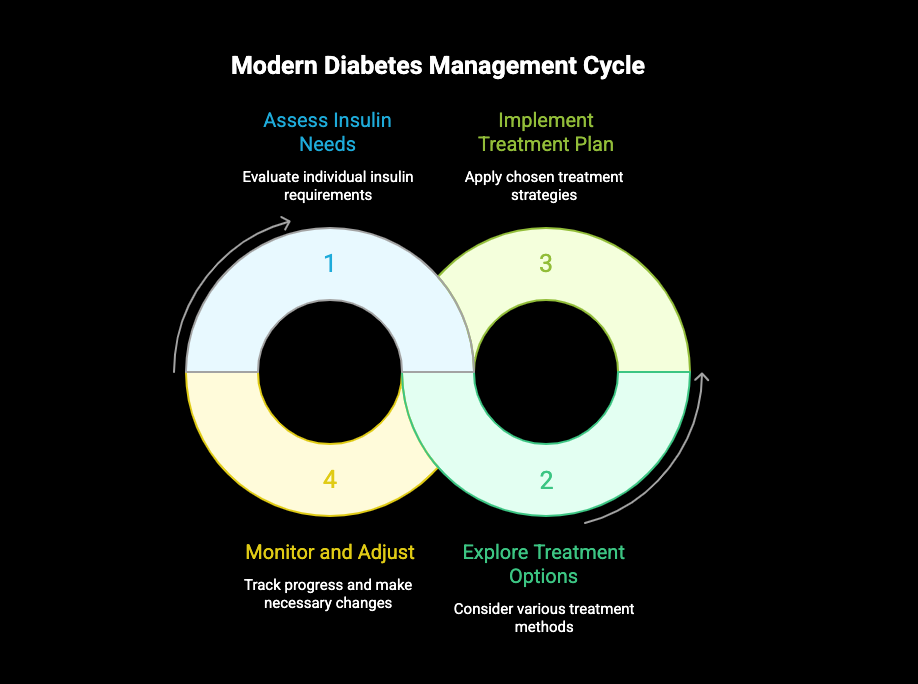
Insulin Isn’t Inevitable
Many people used to think that all diabetics would end up needing insulin. Now, with new medical treatments, things have changed. A lot of adults with type 2 diabetes control their blood sugar with a healthy lifestyle and the right medicine. They do not always need insulin. Metformin is one key medication doctors use for diabetes management. It can help control blood sugar levels for many people.
Key Indicators for Insulin Requirement
To figure out if someone needs insulin, you have to check certain things. A hemoglobin A1C that is over 10% is one clear sign. Another important thing to watch is blood glucose levels. If blood glucose keeps going up to 300 milligrams per deciliter, this shows that the body is having trouble handling it. At this point, the pancreas might not be able to work well. When blood glucose levels are this high, insulin can be a needed part of the treatment.
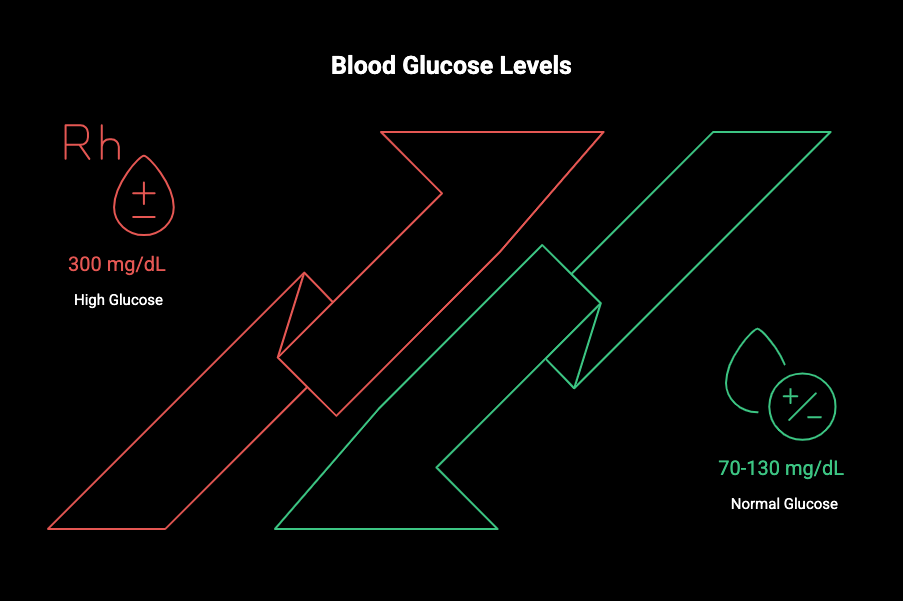
Foundations First: Before Turning to Insulin
It is important to build good habits before thinking about insulin. Many people skip steps in the beginning and wait until things get worse. If you feel weight loss you did not plan for, feel tired, or feel weak, it could mean your body is using fat and muscle for energy. If you catch these signs early and get help, you might not need insulin. This can help you feel better and keep up your health.
Alternatives to Insulin for Diabetes Management
For people who have type 2 diabetes, insulin is not the only way to treat it. There are other good options you can use to keep your blood glucose and glucose levels in check. These choices are an important part of diabetes management today, and they help many people control their blood glucose levels.
These choices include pills you take by mouth, other shots, and basic lifestyle changes. The next sections talk about how these options help you control your blood sugar. You may not need to use insulin injections every day.
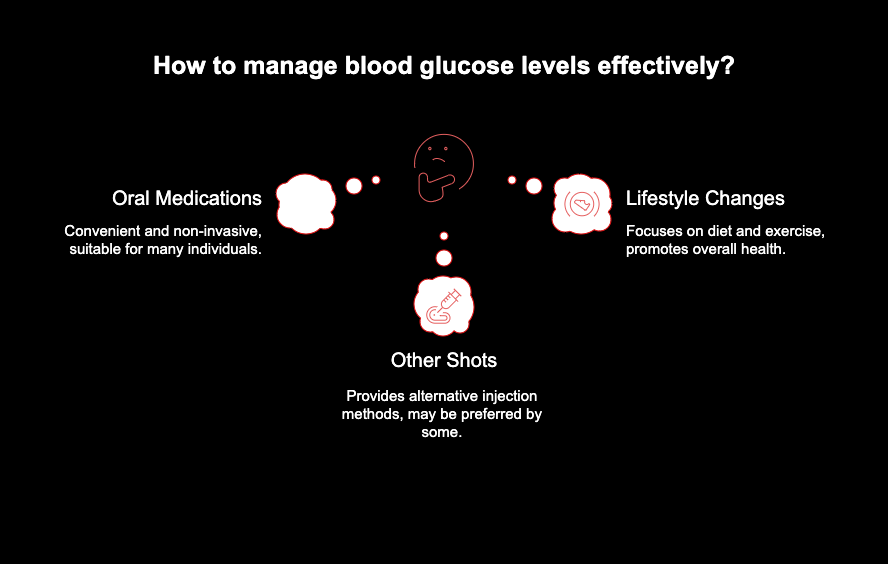
Oral Medications for Type 2 Diabetes
Many people with type 2 diabetes use oral diabetes medicines instead of insulin. The first pill that doctors often give is metformin. Metformin lowers the amount of sugar your liver makes. It also helps your body use its own insulin better.
These medicines help to lower your blood sugar in different ways. You often take them along with a healthy diet and regular exercise. This is the best way to get good results.
Some of the ways diabetes medicines help are:
- Helping your body use the insulin that it makes in a better way.
- Making your pancreas work so it can make more insulin.
- Slowing how fast your body breaks down carbohydrates.
- Helping your kidneys get rid of extra glucose in your blood.
Lifestyle Interventions and Blood Sugar Control
For people with type 2 diabetes, making lifestyle changes is a strong way to control blood sugar. These changes can help them keep blood sugar levels in a healthy range and may mean they do not have to use insulin. A commitment to living healthier can have a big effect on staying in the healthy range.
A healthy diet is very important. You should eat whole foods and try to have less processed sugars and carbohydrates. Along with what you eat, regular exercise matters too. Physical activity helps the body use insulin better and brings down blood sugar. Combining a good diet with exercise will work well for your health.
Key lifestyle interventions include:
- Healthy Diet: Eating good, healthy food helps keep your blood sugar steady. Try to eat fewer calories if you are overweight.
- Regular Exercise: Doing regular exercise, like brisk walking, is important. Aim for at least 150 minutes each week. It helps with blood sugar levels.
- Weight Management: Losing just a little weight can make a big difference. It can help your body use insulin better, and that can improve your blood sugar.
- Stress Management: It helps to find ways to relax and feel less stress. Stress can make blood sugar go up, so doing things that calm you is good for you.
Monitoring Blood Glucose Response
Checking your blood glucose helps you know if your treatment is working. If you check your glucose levels often, you and your doctor can see if you stay in your target range. A lot of people use a continuous glucose monitor to get up-to-the-minute information.
How different types of insulin help to control blood sugar depends on how fast they start to work and how long they stay in your body. This way, people can choose the right kind of insulin to keep their blood sugar levels under control during the day and at night. A tailored approach like this helps you get a healthy blood sugar balance and feel your best.
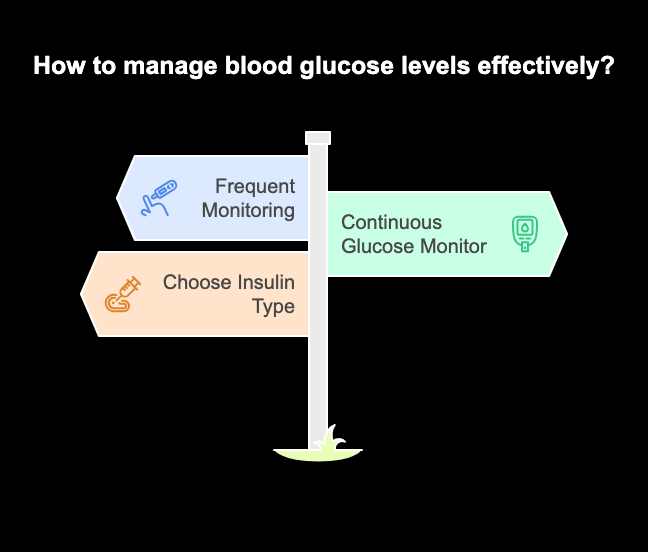
Conclusion
Talking to your healthcare provider is very important when you have diabetes. It helps you watch your health markers and change your daily habits when you need to. This can keep you from making quick choices or using insulin when there is another way. Each person is different, so the best thing is to get advice made just for you from doctors or nurses.
Frequently Asked Questions
Can someone with diabetes manage without insulin entirely?
Yes, many people who have type 2 or gestational diabetes can take care of it without using insulin. A good treatment plan often mixes lifestyle changes with a healthy diet and regular exercise. People may also use oral medicines. This can help keep blood sugar and blood sugar levels in a good range, so there is no need for insulin for good diabetes care.
At what point should type 2 diabetics consider insulin?
A person who has type 2 diabetes may need to start insulin therapy if lifestyle changes, regular exercise, and other medicines do not help keep blood sugar under control. A healthcare provider will help decide when this step is right. They will also change the treatment plan to fit the person’s health needs.
Why do people with type 1 diabetes always require insulin?
People with type 1 diabetes need insulin all the time. The reason is that their immune system destroys cells in the pancreas that make insulin. Because of this, there is a lack of insulin in the body. The body cannot control blood glucose on its own. People have to get insulin shots or use a pump every day to stay alive.


